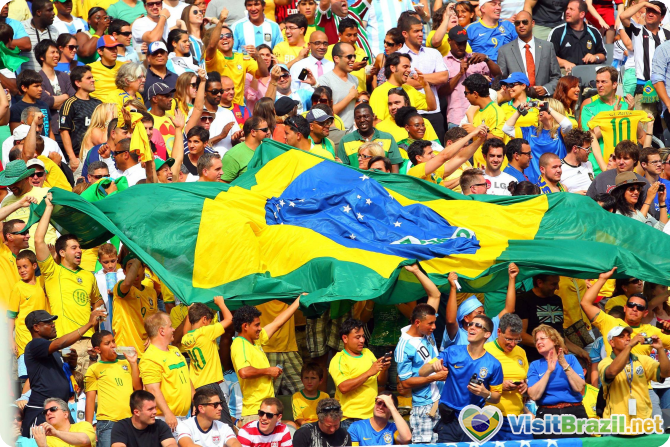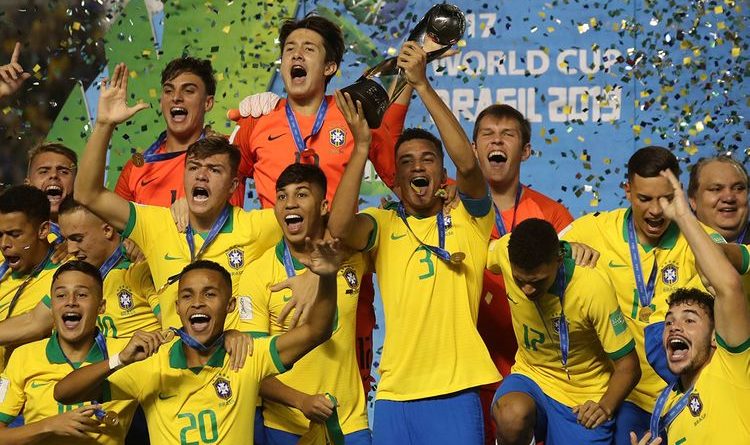Football Championship in Brazil
Football is an incredibly popular sport in Brazil, with men and women, old and young taking great pleasure in watching the sport. Football inspires passion and fire, as well as disappointments and heartbreaks. The thrill of a person’s team winning creates joy and elation, but the sorrow of a team losing can cause great misery and frustration. Football is woven into the very fabric of Brazilian life, and is part of the local culture. Indeed, football is important in a lot of South America.
Males and females both also enjoy playing football in Brazil. Whilst it is still arguably very much a male dominated area in terms of players, there are important women’s teams and leagues, showing that females are starting to be given recognition in this sporting area.

A wander through some of Brazil’s poorest areas will reveal kids in the street playing football with a battered old ball, dreaming of becoming the next big star.
Brazil is hosting the World Cup in 2014, and much has been written about this – the game schedule, the groups, the players, predictions, and odds – but what about domestic football?
The football league system in Brazil is comprised of different connected leagues for teams and clubs all over the country. The national competitions and the state competitions are independent, meaning that a club can participate in both competitions in the same year; it can also mean that a club may fare well in one league, but not so well in another.
There are several different levels within the state pyramid and the national pyramid.
The two different leagues are arranged and organized differently – national events are arranged by the CBF, the Brazilian Football Confederation. Founded in 1914 it is responsible for organizing all national level competitions, as well as the Brazilian Cup and Copa do Nordeste, which is a regional completion. The CBF is also responsible for administering the Brazilian national team and the national women’s team. A league for women and a football cup competition was started in 2007.
State championships are arranged by the many different football federations for each individual state. It is common for many states to also operate a lower competition for those clubs that do not rank in the high performers. The state cups are typically played later on in the year, after the state championships have finished.
The national pyramid is made up of four leagues – A, B, C, and D Series. Each year sees four teams being promoted and relegated to and from each Series. It is said that there can be a lot of unfairness within the state competitions, with larger and more powerful clubs often getting a lot of advantages over others.
The Copa do Brasil is one of the most prestigious football events on the country. The participants are the best placed clubs according to the CBF, the winners of the last state championships, and those clubs who ranked highly in the state championships.

Currently, some of the best football clubs in Brazil include Sao Paulo, Corinthians, Flamengo, Fluminense, Santos, Vasco, Botafogo, Internacional, Gremio, Atletico-MG, Cruzeiro, and Palmeiras. However, as Brazil has more professional football teams than any other country on the planet, it can be very difficult to name just a small selection.
Some of Brazil’s most famous football people and players of all time include the legendary Pele, Ronaldo, Ronhaldino, Zizinho, Kaka, Adriano, Rivaldo, Tastao, Romario, Socrates, and Jair. Of course, in a country where football is one of the main passions, there are many, many more! When a footballer retires his career and prestige do not end; they are placed in a position of great worth in the country. It is not uncommon for ex-footballers to go on to become politicians, movie stars, and legislative powers. It is little wonder, therefore, that football really does help to shape the national identity and psyche.
And about the World Cup – did you know that the Brazilian squad has won the competition more times than any other nation on earth? They have been crowned the winners a staggering five times – very impressive when you take into account that, not including 2014’s World Cup, there have only been 19 competitions.
Interestingly, Brazil is also the only country to have played in every single World Cup competition. Statistically, they have won the competition almost one in every four times that they have appeared. Along with Argentina and Spain, Brazil is one of only three countries to have won the FIFA World Cup hosted in a different continent – they have won on European, Asia, and North American soil. That’s certainly an impressive record!


